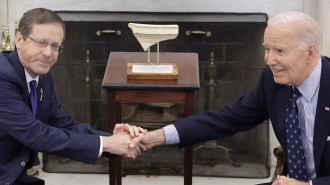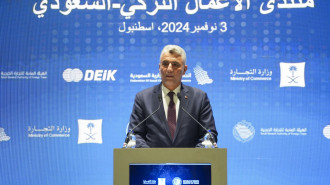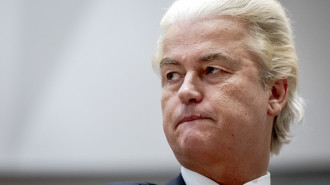New Tunisian government wins parliamentary confidence vote amid controversy
Former finance minister Elyes Fakhfakh was named prime minister-designate by Tunisia's president Kais Saied at the end of January and was tasked with forming a government within a month.
A previous cabinet team put forward by him was rejected by the Islamist-inspired party Ennahdha, which won the most seats in October's legislative election but fell far short of a majority in the 217-seat assembly.
But Fakhfakh's revised lineup won the vote 129 to 77 after a debate which started on Wednesday and lasted more than 14 hours. This, however, is the lowest margin by which a Tunisian government has won a parliamentary confidence vote since the 2011 revolution which ousted long-time dictator Zine El Abidine Ben Ali.
Fakhfakh will become the eighth Prime Minister of Tunisia since the revolution.
Ennahdha had given its support to the new cabinet after being handed six ministerial portfolios.
|
|
Fakhfakh said last week that despite difficulties, the negotiations had taken place "in a completely democratic manner".
The confidence vote follows a power struggle between the president and Ennahdha, with the party previously threatening to force out Fakhfakh.
Fakhfakh had also faced criticism from several other parties for holding dual nationality. Some of his ministers also held office under the Ben Ali regime.
The government will be sworn in at a ceremony held later on Thursday at the Presidential Palace, the president's press office told AFP.
Tunisia, which has been managed for more than four months by the outgoing government, has been trying to revive a struggling economy.
Unemployment continues to affect the population, especially the young, and inflation is eroding an already low consumer purchasing power.
Read also: Troubling and tragic - Suicides rise among Tunisian children
The new government will be tasked with relaunching discussions with the International Monetary Fund, which in 2016 approved a four-year $3 billion loan for Tunisia in return for major reforms, some of which are disputed.
Due to delays, the country has only received about $1.6 billion so far, with the agreement ending in April and the first repayments due in November.
Follow us on Facebook, Twitter and Instagram to stay connected







 Follow the Middle East's top stories in English at The New Arab on Google News
Follow the Middle East's top stories in English at The New Arab on Google News


